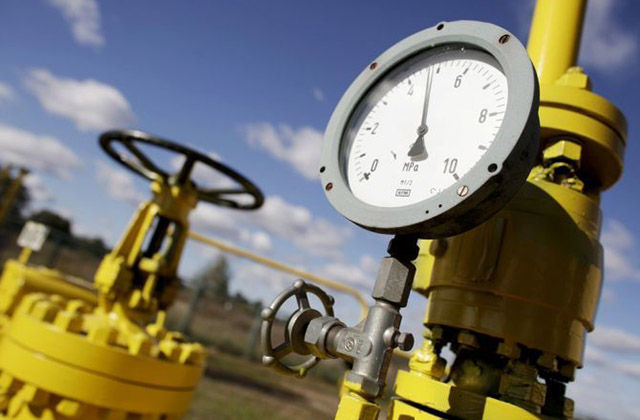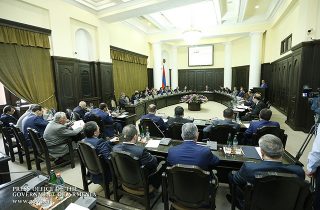The risk of gas

At the joint press conference of PMs of Armenia Karen Karapetyan and of Artsakh Arayik Harutyunyan, launched in Artsakh, as anticipated, the issue of gas tariff review was touched upon again. Reporters asked again: how “Gazprom-Armenia” operating with a loss, reduces the tariff and won’t we withdraw any property to this company in the future?
Armenian PM reminded the four sources, which allow “Gazprom Armenia” to reduce the tariff (decrease of price for gas transit, ease of loan liabilities, consumption volume and income growth on account of cheap gas, responsibility of assuming tariff reduction risk by “Gazprom”).
To our observation that the motivation isn’t clear (as the same steps, besides tariff reduction, “Gazprom-Armenia” could implement and cover the loss on its own account without tariff reduction), the PM replied,
“There is an issue of market decrease, economic vitalization. We negotiated with “Gazprom-Armenia” as a businessman to a businessman. As the PM, I am interested to provide maximal privilege to business, however, I can’t do it on account of any company, as it means choking the one and it’s not clear will I improve the other or not? I said, let’s ponder: your market is shrinking, economic activeness reduces, in case of market shrinking you’ll every time come and ask for a new margin, as on small volume your margin should increase. We made a rather logical, business-logical proposal.”
The PM called tariff reduction an experiment, success of which depends on how the market will react.
“If the experiment succeeds, the market will increase, if “Gazprom-Armenia” and its founder see, that the market is reflecting and expanding, we’ll continue that experiment,” he said, adding that everything is clear, and there is no any secret here.
Moreover, to make his words more comprehensible, K.Karapetyan brought an example with a glass before him,
“I may sell ten likewise glasses, each per 1 ruble. Now you say: let’s define the price 0.97 ruble and in that case we’ll sell 12 or 14 items. In the margin it’ll be less by 0.03, however, in volume the income will be much more. Is this business logic?”
Yes, what Karen Karapetyan considers, is really logical. Moreover, it’s a well-known economical truth called law of demand. “Under other equal conditions reduction of the commodity price leads to increase in demand and vice versa,” that law reads. What does it mean—other equal conditions? For instance, if taste of the population changes and drinking water from the bottle becomes fashionable, then drop of price for the glass probably won’t give the anticipated result. In case of gas price, impact of equal conditions should be weak for the experiment to have an effect, e.g. price for petroleum shouldn’t reduce, if the price continues dropping, gas consumption in gas filling stations will reduce. Exchange rate, number of population, purchase power and etc. are among other conditions.
Time will show the success of the experiment. However, everything isn’t so clear, as it’s being introduced.
Thus, “Gazprom-Armenia” is one the most serious companies in Armenia with qualitative staff, highly paid management. Its owner company “Gazprom” is also added to this with its top management astronomical salaries. Is it possible that anyone in “Gazprom” couldn’t have thought of drop in price and the possibility of increasing the incomes? Perhaps, no.
This “no” was indirectly confirmed by Karen Karapetyan as well: to our observation that the Government hints the way of optimization, rising of productivity to the business, the PM replied, “We didn’t hint, but we negotiated, discussed and are ready to speak to any businessman…”
Now let’s come to the next question. Is there any risk that the experiment may fail? Yes. And as “Gazprom-Armenia” didn’t cover that risk, supposedly that risk is big. “Gazprom-Armenia” and its owner company, after having negotiated with the Government, agreed to take the risk. “Negotiate” used by Karen Karapetyan means convincing. The Government didn’t hint or convince “Gazprom” that it may gain by reducing the tariff (this calculation will be perfectly implemented in “Gazprom”), but convinced to take the risk.
As the PM said, there is no any secret. Instead, there is concern—“Gazprom” takes the risk. And it’s bothering, as the experience showed that despite the statements, in relations with Armenia “Gazprom” either doesn’t take the risk or the burden of risk remains on the population in the form of higher tariff or conceded property.
Hopefully, this time the experiment will succeed.
By Babken Tunyan

























